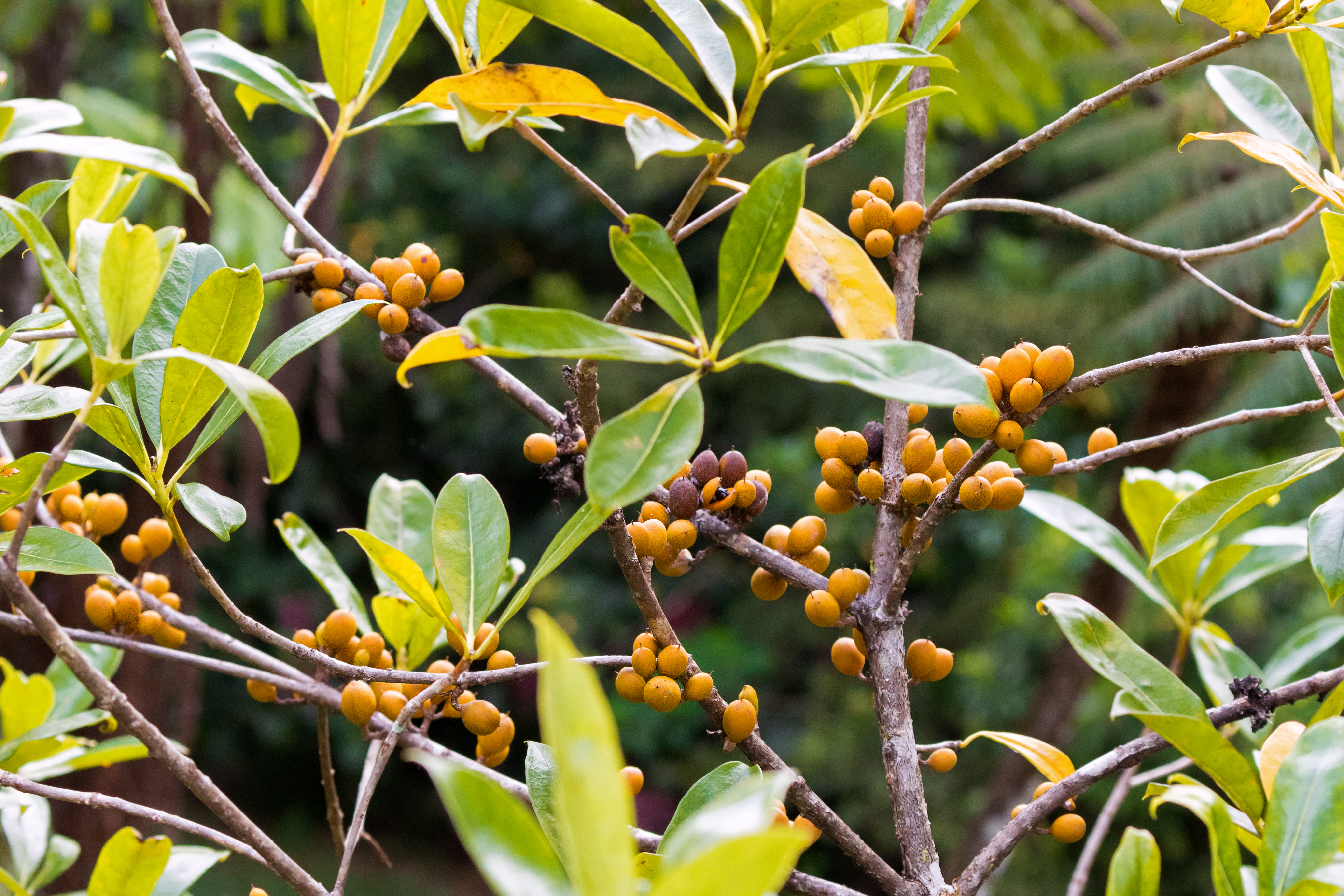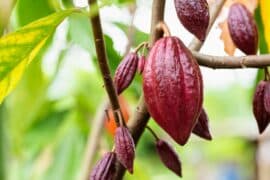Resin Cheesewood
(Pittosporum resiniferum)

Description
Pittosporum resiniferum, the resin cheesewood or petroleum nut, is a tree that grows in the Philippines and Malaysia, particularly in the wilderness surrounding the Mayon Volcano and in the Cordillera of the Philippines and Mount Kinabalu of Sabah, Malaysia. The petroleum nut derives its name from the resemblance of the fruit's odor to petroleum-based fuels. The fruits of the tree burn brightly when ignited, and can be used for illumination as torches or candles. Its fruit is also highly suitable for use in producing biofuel. This use has been encouraged by the Philippines Department of Agrarian Reform and the Philippine Coconut Authority. In the Philippine Cordilleras petroleum nut is locally known as apisang, abkel, abkol and da-il, is found among other trees like oak and other mossy forest species. It can also grow well with pine trees. The oil obtained from the fruit contains a dihydroterpene(C10H18) and also considerable quantities of normal heptane, which had only once before been found in nature, occurring in the Grey Pine (Pinus sabiniana) of California. The oil can also be distilled into a very pure form of n-Heptane. Pittosporum is a genus of Magnoliopsida. Pittosporum belongs to the family Pittosporaceae. Pittosporum is a genus of about 200 species of flowering plants in the family Pittosporaceae. The genus is probably Gondwanan in origin; its present range extends from Australasia, Oceania, eastern Asia and some parts of Africa. Citriobatus can be included here, but might be a distinct (though closely related) genus. They are commonly known as pittosporums or, more ambiguously, cheesewoods. The species are trees and shrubs growing to 2–30 m tall. The leaves are spirally arranged or whorled, simple, with an entire or waved (rarely lobed) margin. The flowers are produced singly or in umbels or corymbs, each flower with five sepals and five petals; they are often sweetly scented. The fruit is a woody seed capsule, which bursts on ripening to release the numerous seeds. The seeds are coated with a sticky resinous substance. The genus is named after their sticky seeds, from the Greek meaning "pitch-seed".
Taxonomic tree:







